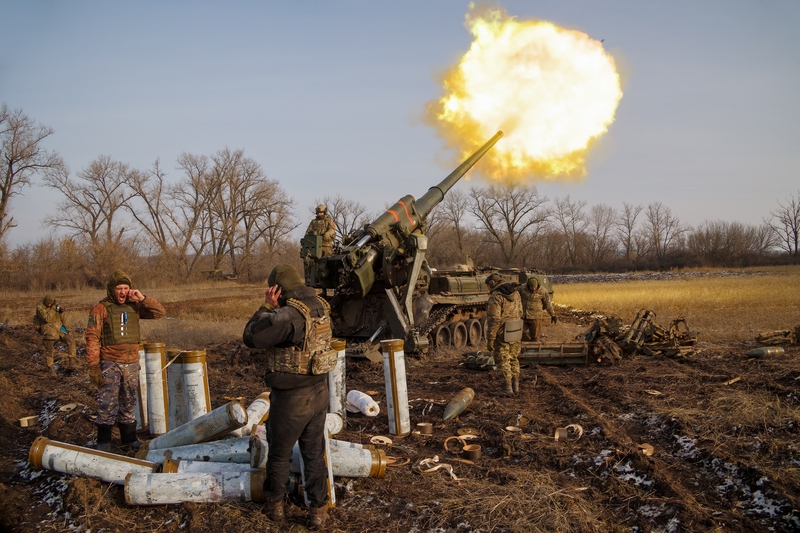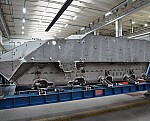Ukraine today, Taiwan tomorrow?
In relation to the ongoing war in Ukraine, China and a potential war in Asia are being mentioned more frequently. A possible trigger for war could be China's ambition to control Taiwan. Although the war in Ukraine is more acutely concerning for europian security, it cannot be relied upon that China will back down from its intention.
Although it may seem that Ukraine and Taiwan have almost nothing in common, the opposite is true. Both countries face a neighboring state that does not hide its hostility towards them. In Ukraine, the hostility escalated into open war. Both Russia and China are members of the UN Security Council and possess nuclear weapons, which significantly limits the options of the international community. Moreover, neither Ukraine nor Taiwan are members of NATO, the EU, or their equivalents. Additionally, Taiwan is not internationally recognized as a sovereign entity. Both Ukraine and Taiwan have cultural, geographical, and economic proximity to Russia and China, respectively. Therefore, comparing these two cases is straightforward. Unfortunately, in the case of China towards Taiwan, it cannot be ruled out that in the medium to long-term future, an attack on Taiwan may occur. War is not inevitable, however, it's not unrealistic either, and it's very short-sighted to evaluate the situation through the prism of the war in Ukraine.

China does not perceive the war in Ukraine as a deterrent example, but rather as a case through which to study Western thinking and potential Western reaction in the event of an attack on Taiwan. China sees Russian military failures, as well as the impact of economic sanctions and diplomatic isolation, and is able to learn from these developments.
The war for Taiwan is very likely for several reasons. The first is the long-term Chinese rhetoric towards Taiwan. China does not hide the possibility of using force against Taiwan and openly declares that it will never give up this option. China refers to the ruling cadre in Taiwan as "separatists," who are moving towards declaring independence, which from China's perspective is a serious threat to the territorial integrity of the People's Republic of China.
Furthermore, within the People's Liberation Army of China, extensive modernization is underway. According to the plan of the Chinese leadership, the Chinese army is to be ready for an attack on Taiwan by 2027 (although this does not mean that they will attack in this year). The overall modernization is then expected to end by 2035, and by 2049, the People's Liberation Army of China is supposed to reach global standards. A significant budget, which according to the latest, albeit unofficial, estimates reaches up to 700 billion dollars, is being utilized for this modernization. Additionally, the modernization focuses on capabilities necessary for blocking American forces in the Western Pacific region and a potential attack on Taiwan. The People's Liberation Army also duly demonstrates its strength in the Taiwan Strait and, since the visit of Nancy Pelosi in August of the previous year, has been continuously conducting various exercises in the vicinity of the island. These exercises include obligatory flyovers of various types of aircraft, missile force exercises, and practicing landing operations. A crucial part also includes the deployment of the navy, including aircraft carriers and assault landing ships. At present, however, the People's Liberation Army does not plan to attack Taiwan in the short-term future, especially due to its own unpreparedness. However, as already mentioned, this may not apply to the medium to long-term future, when China may attain the capabilities necessary for invasion or there may be an unexpected development within the Communist Party. The latter reason might be quite unexpected, but a more serious trigger for a possible attack, which could serve as a unifying factor in a crisis or a demonstration of strength from the possible new party leadership.
A common argument used in discussions about a possible Chinese attack on Taiwan is the economic aspect and the fact that such an attack would not be worth it for China, whether due to its role in the supply chain or the importance of Taiwan in terms of semiconductor technologies. However, it should be noted here that the Chinese economy is intertwined with the global economy much more than the Russian one, and therefore, it is very likely that any economic sanctions against China would affect not only China, but also the sanctioning states. According to a recent study by the Atlantic Council and Rhodium Group, in the case of a maximalist scenario of sanctions against the Chinese financial sector, global losses could reach up to 3 trillion dollars. Regarding exports and imports, maximalist scenarios would mean losses in hundreds of billions of dollars. It is therefore a question of whether any states would adopt sanctions against China in the event of an attack on Taiwan.
The war for Taiwan is not inevitable, but unfortunately, it is not impossible either. Chinese efforts to control Taiwan persist, and although it may seem that it's an island 9000 km away from Europe, a potential war would significantly affect European security as well. Therefore, the situation in the region cannot be trivialized and succumb to false illusions.








